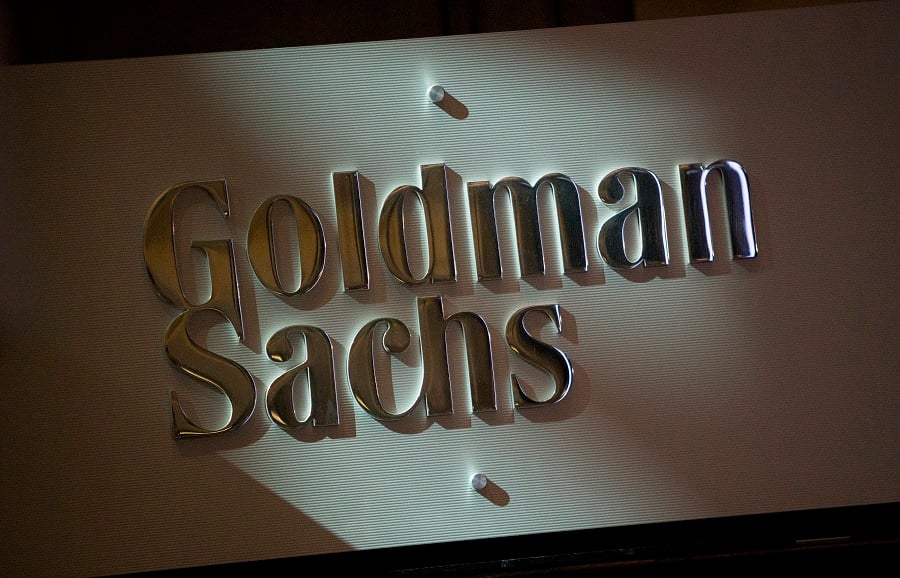

Goldman Sachs Group Inc.’s trading unit powered a surge in earnings in the second quarter.
Both fixed-income and equity traders outpaced analysts’ estimates, while a rebounding capital-markets business helped drive better-than-expected results across much of the company’s Wall Street operations.
Still, in a surprise reversal, the company pocketed less in fees from arranging mergers than JPMorgan Chase & Co. Goldman tends to lead the industry in that business and rarely falls behind its rival.
Even as more businesses are on the prowl for deals, the approaching US elections could further delay a return to the pace of growth in the mergers seen in recent years. The business is especially important for Goldman because the firm has tried to showcase its strong investment bank and growing asset-management operation, after abandoning an expansion into consumer banking.
Earnings in the second quarter were 2.5 times higher than what Goldman posted a year ago, when it was plagued by losses in real estate investments and the consumer-banking unit in the middle of an industrywide dealmaking slowdown. Net income was $3.04 billion on $12.7 billion in revenue in the three months through June 30, according to a statement Monday.
Shares of the New York-based company advanced 24% this year, propelling the stock to an all-time high of $479.88 on Friday. They were little changed in early New York trading Monday.
Last month, in a surprise move, the bank tapped John Mahoney, a financial-services banker who has been with the firm since 1987, to oversee firmwide strategy. That’s a departure from recent years, when Goldman had been tapping younger, fast-rising executives destined for bigger jobs at the firm for a similar role. The firm is also turning to a merger banker for a strategy role at a time when it has preached caution about the need for acquisitions to grow, especially after pursuing multiple deals to build out a retail-banking business that flopped.
Goldman has instead tried to pare its focus to expanding its investment bank and money-management business to achieve its mid-teens return-on-equity target. It fell short of that mark in the second quarter, notching 10.9%.
The fixed-income trading business posted $3.18 billion in revenue, driven by strength in rates and currencies. The stock-trading unit logged $3.17 billion. Goldman touted its second-best quarter ever across both businesses in financing revenue.
Investment-banking revenue of $1.73 billion fell short of analysts’ average estimate of $1.8 billion. Merger-advisory fees were $688 million. That was less than the $785 million that JPMorgan reported last week.
Goldman’s equity capital markets business generated $423 million in revenue, and debt-underwriting revenue was $622 million.
The asset- and wealth-management business posted revenue of $3.88 billion, up 27% from a year earlier. Management fees climbed 8% as the bank seeks to shift growth to those fees instead of windfalls from balance-sheet investments.
Goldman said last quarter that it raised its biggest war chest yet for private-credit wagers. The firm closed the latest iteration of its direct-lending fund, which along with separately managed accounts for the same strategy amounted to $21 billion. The bank also clinched a $43 billion mandate to invest pension-fund assets of parcel-delivery company UPS, in one of the largest deals of its kind.
That progress has helped the bank stay on track to exceed a target is spelled out earlier this year of raising $50 billion in alternative assets.
In consumer banking, revenue was up 4% and transaction-banking fees dropped 15% from a year earlier. Those businesses are part of the unit that the bank has been disassembling as it reverses its push into retail banking.

Eliseo Prisno, a former Merrill advisor, allegedly collected unapproved fees from Filipino clients by secretly accessing their accounts at two separate brokerages.

The Harford, Connecticut-based RIA is expanding into a new market in the mid-Atlantic region while crossing another billion-dollar milestone.

The Wall Street giant's global wealth head says affluent clients are shifting away from America amid growing fallout from President Donald Trump's hardline politics.

Chief economists, advisors, and chief investment officers share their reactions to the June US employment report.

"This shouldn’t be hard to ban, but neither party will do it. So offensive to the people they serve," RIA titan Peter Mallouk said in a post that referenced Nancy Pelosi's reported stock gains.
Orion's Tom Wilson on delivering coordinated, high-touch service in a world where returns alone no longer set you apart.
Barely a decade old, registered index-linked annuities have quickly surged in popularity, thanks to their unique blend of protection and growth potential—an appealing option for investors looking to chart a steadier course through today's choppy market waters, says Myles Lambert, Brighthouse Financial.
